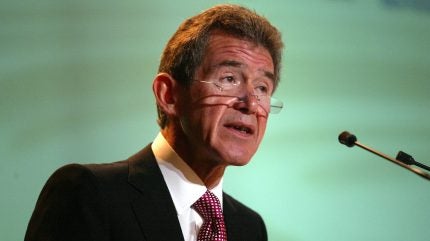
John Browne, the former head of bp, has seemingly backed a Labour Party pledge to end North Sea oil and gas exploration.
The industry heavyweight, who joined the energy giant as an apprentice in the 1960s, said that plans for the North Sea and the “energy transition” would be important issues at the next election.
The UK goes to the polls on 4 July, with Labour currently enjoying a comfortable lead over the incumbent Conservative party.
Browne, in comments published in the Financial Times on Friday, said the next government should “call a halt” to new North Sea oil and gas projects. Making such a move, he claimed, would help “reinforce our intention to get to net zero and show timely leadership”.
The UK Government is aiming to reduce all direct emissions from public sector buildings by 50% and 75% by 2032 and 2037, respectively, with all UK emissions reaching net zero by 2050.
Labour said in an announcement last summer that it would end new North Sea oil and gas exploration, with more local investment in communities most affected. However, the party has pulled back from a previous pledge to invest £28bn ($35.54bn) a year in green industries.
Last week, the party promised to create so-called offshore skills passports, which would allow workers to move more easily between the fossil fuels and renewables industries.
Shadow Scottish Secretary Ian Murray has now pledged to work with the Scottish Government to introduce the policy.
The Conservative party has openly backed continuing with annual licensing rounds to help use up and extract remaining North Sea oil and gas.
Browne admitted that Britain would need oil and gas for several years, so existing projects should continue.
However, he added that it is “hard to believe that finding and developing the very limited oil and gas resources that remain… will cost less than buying supplies from the world market if needed”.
Ed Miliband, the shadow climate secretary, said that Browne is adding his voice “to the chorus of energy experts… who make clear that new oil and gas licences are not the right choice for Britain”.
Labour is planning to increase the government’s existing windfall tax on North Sea oil and gas profits, which will help fund a publicly owned green energy company, GB Energy. It will help scale up new green technologies and community energy projects.
In fact, political uncertainty is already having an impact on North Sea exploration.
Jersey Oil & Gas (JOG) is now assessing its plans to drill and extract oil from the Buchan redevelopment project, reported to be the third-largest pre-development field on the UK Continental Shelf.
Andrew Benitz, CEO of JOG, said in a statement on Friday: “With a UK General Election now announced, we are hopeful that fiscal clarity will be forthcoming in short order so that the industry can continue to do what it does best, namely investing in major capital projects that deliver vital low carbon homegrown energy and highly skilled jobs.”
The Buchan licence was awarded to JOG in 2019. The Buchan oilfield lies in approximately 110m of water 150km north-east of Aberdeen.
There are currently 283 active oil and gas fields in the North Sea, according to the UK Government’s own figure, but by 2030, around 180 of those will have ceased production due to natural decline.



